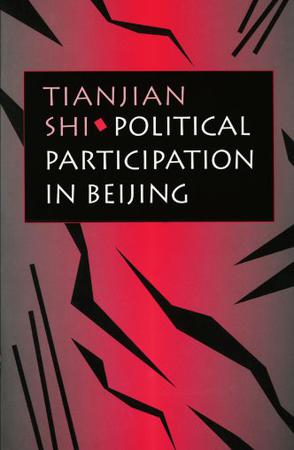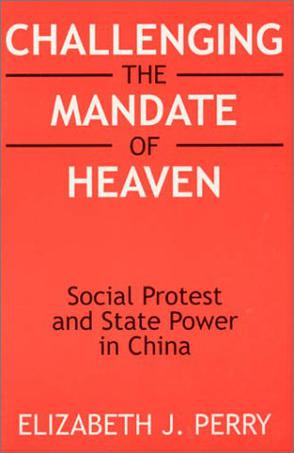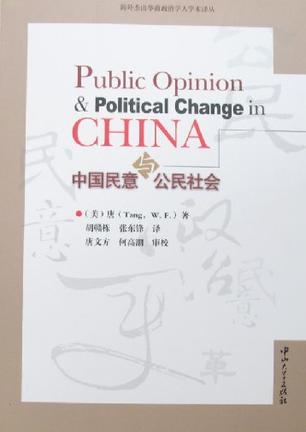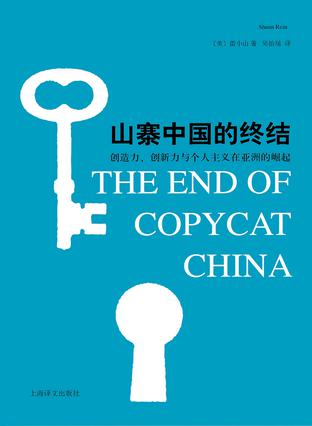-

Political Participation in Beijing
In this first scientific survey of political participation in the People's Republic of China, Tianjian Shi identifies twenty-eight participatory acts and groups them into seven areas: voting, campaign activities, appeals, adversarial activities, cronyism, resistance, and boycotts. What he finds will surprise many observers. Political participation in a closed society is not necessarily characterized by passive citizens driven by regime mobilization aimed at carrying out predetermined goals. Beijing citizens acknowledge that they actively engage in various voluntary participatory acts to articulate their interests. In a society where communication channels are controlled by the government, Shi discovers, access to information from unofficial means becomes the single most important determinant for people's engaging in participatory acts. Government-sponsored channels of appeal are easily accessible to ordinary citizens, so socioeconomic resources are unimportant in determining who uses these channels. Instead, voter turnout is found to be associated with the type of work unit a person belongs to, subjective evaluations of one's own economic status, and party affiliation. Those most likely to engage in campaign activities, adversarial activities, cronyism, resistance, and boycotts are the more disadvantaged groups in Beijing. While political participation in the West fosters a sense of identification, the unconventional modes of participation in Beijing undermine the existing political order. -

China's Trapped Transition
-

Governing China's Population
China’s giant project in social engineering has drawn worldwide attention, both because of its coercive enforcement of strict birth limits, and because of the striking changes that have occurred in China’s population: one of the fastest fertility declines in modern history and a gender gap among infants that is the highest in the world. These changes have contributed to an imminent crisis of social security for a rapidly aging population, provoking concern in China and abroad. What political processes underlie these population shifts? What is the political significance of population policy for the PRC regime, the Chinese people, and China’s place in the world? The book documents the gradual “governmentalization” of China’s population after 1949, a remarkable buildup of capacity for governance by the regime, the professions, and individuals. Since the turn of the millennium the regime has initiated a drastic shift from “hard” Leninist methods of birth planning toward “soft” neoliberal approaches involving indirect regulation by the state and self-regulation by citizens themselves. Population policy, once a lagging sector in China’s transition from communism, is now helping lead the country toward more modern and internationally accepted forms of governance. Governing China’s Population tells the story of these shifts, from the perspectives of both regime and society, based on internal documents, long-term fieldwork, and interviews with a wide range of actors—policymakers and implementers, propagandists and critics, compliers and resisters. This study also illuminates the far-reaching consequences for China’s society and politics of deep state intrusion in individual reproduction. Like Mao’s Great Leap Forward, Deng’s one-child policy has created vast social suffering and human trauma. Yet power over population has also been positive and productive, promoting China’s global rise by creating new kinds of “quality” persons equipped to succeed in the world economy. Politically, the PRC’s population project has strengthened the regime and created a whole new field of biopolitics centering on the production and cultivation of life itself. Drawing on approaches from political science and anthropology that are rarely combined, this book develops a new kind of interdisciplinary inquiry that expands the domain of the political in provocative ways. The book provides fresh answers to broad questions about China’s Leninist transition, regime capacity, “science” and “democracy,” and the changing shape of Chinese modernity. -

Challenging the Mandate of Heaven
Social science theories of contentious politics have been based almost exclusively on evidence drawn from the European and American experience, and classic texts in the field make no mention of either the Chinese Communist revolution or the Cultural Revolution - surely two of the most momentous social movements of the twentieth century. Moreover, China's record of popular upheaval stretches back well beyond this century, indeed all the way back to the third century B.C. By bringing together studies of protest that span the Imperial, Republic, and Communist eras, this book introduces Chinese patterns and provides a forum to consider ways in which contentious politics in China might serve to reinforce, refine or reshape theories derived from Western cases. -

中国民意与公民社会
《中国民意与公民社会》研究当代中国公众政治态度和政治行为的形成和对中国公民社会发展的作用。作者在第一章中首先对中国政治环境与西方政治环境的区别进行了描述,然后在第二章中讨论民意调查在中国的实施和问题,第三章讨论中国公众对政权的支持度,第四章研究媒体对公众政治态度的影响,第五章谈中国的人际关系对公民社会形成的影响。接下来的部分讨论公民政治行为,包括第六章公民表达意见的程度和渠道,第七章有关职工政治参与和解决劳动纠纷的研究,第八章关于知识分子对社会变革作用的讨论。在第九章结论中,作者总结了民意在中国XX主义政治制度中影响决策和公民社会发展的特点。上述研究发现,即使是在中国目前的政治环境下,民意有可能向公民社会发展,也可以影响政府决策和中国的政治变迁。 作者从三个大的理论方面探讨中国民意的形成,即现代化与市场经济,文化传统,政治制度,结果发现现代化和市场经济对民意的影响最大,文化传统其次,政治制度最少。这一发现与西方主流政治学派的观点不同,西方政治学认为,中国的民意是被政府操纵的,而且无法影响政府的决策。从这个意义上说,这本书是在西方政治学中研究中国民意的一次突破。 《中国民意与公民社会 》在研究当代中国政治方面的另一个突破是它的实证性。这是第一部从全国范围研究中国公民政治态度和行为的英文著作,它包含了对几万人的民意调查数据,时间从1987年到2004年,其中198X年5月和10月国家经济体制改革委员会的中国城市调查,更是记录“XXXXX风波”绝无仅有的科学依据。 很显然,作者关心的不是中国如何在一夜之间民主化.而是关心民意如何向公民社会发展。在一个公民社会中,百姓应当有参与的愿望,团结合作、互相尊重的精神,忍让和容忍不同意见的风格,以及独立思考的能力。有了公民社会,民主才可以运转和持续,没有公民社会,再好的民主制度也无法实施。 -

山寨中国的终结
中国能否通过创新,走出长期经济放缓的困境? 雷小山认为可以。 毫无疑问,雷小山并不是唯一认为中国企业正在步入创新阶段的人。2014年,波士顿咨询公司(BCG)把4家中国企业(联想、小米、腾讯和华为)纳入其年度全球最具创新力的50家企业榜单。 雷小山认为,中国如今将开启创新之路,因为它不得不如此。而过去它之所以没这么做,也主要是还不需要。 在《山寨中国的终结》中,雷小山写道,在一个基本商品供应不足的国家,发展最先进技术的动力往往不足。如果靠山寨就能赚钱,谁还会去关心技术创新?这也正是很多中国企业在过去几十年里所做的。 在赢得向国内消费者提供基本商品的战役后,如今,中国企业被迫转向创新。由于供应基本商品这颗“低垂的果实”已被采摘,这些企业不得不开始在中国或国外市场攀爬价值链的更高端。 那么,这些转型的中国故事是个例,还是全局?创新力和个人主义是否正在亚洲崛起? 在5万份消费者调查报告的基础上,为了获得贴近事实的观察视角,雷小山与普通消费者、公司高管、最具创新能力的企业创始人,甚至是官员进行面对面的深入交谈。 无论如何,对于中国而言,唯一确定不变的,就是这个国家正在快速改变。